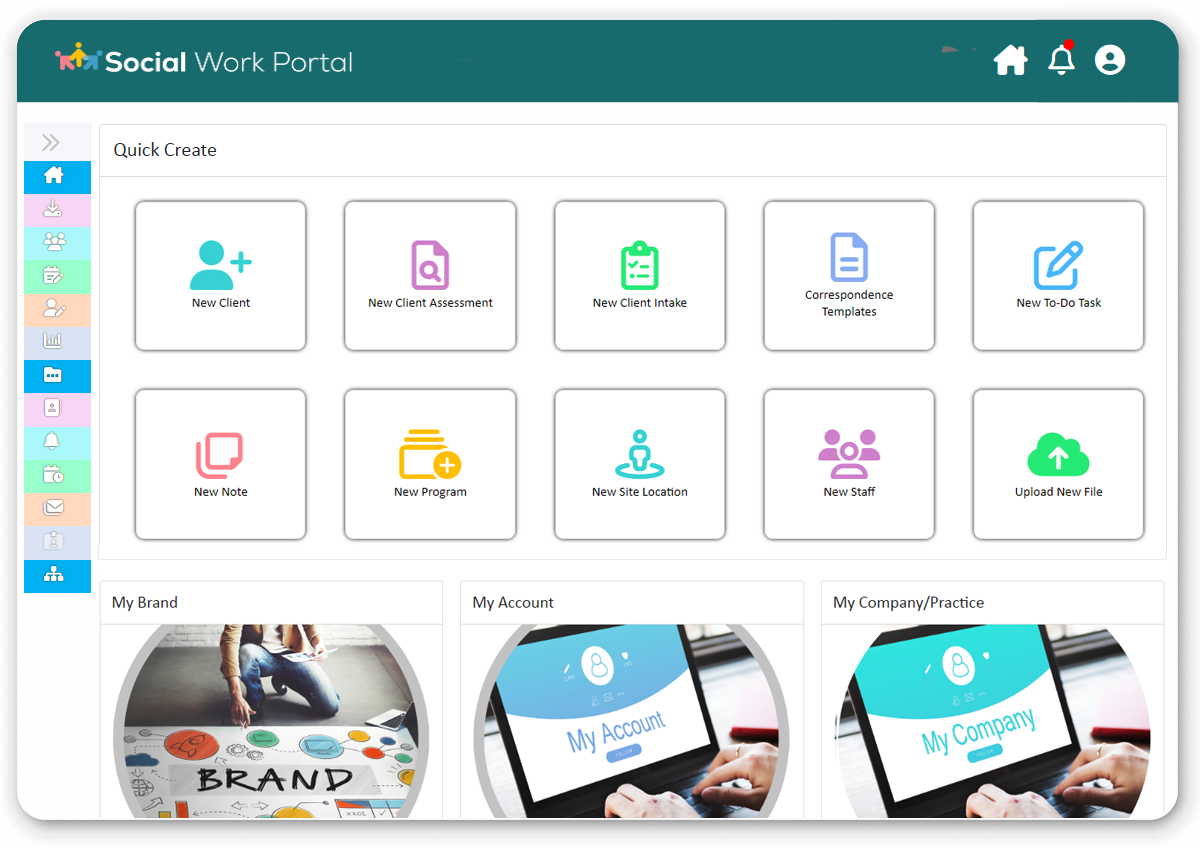Advocacy Unleashed: A Primer for Political Social Workers
Have you ever felt a deep sense of frustration about social issues but wondered how to enact real change beyond individual client work? Perhaps you’re a social worker with a passion for advocacy and a desire to influence policy decisions that impact your clients’ lives. If so, then political social work might be the perfect path for you.
Picture this: You’re standing at the crossroads of policy corridors, where legislation shapes lives, and grassroots movements echo through the halls of power. As a political social worker, you’re not just an observer; you’re a catalyst for transformation. Your toolkit includes empathy, resilience, and a fierce commitment to justice.

In this guide, we’ll delve into the art of bridging the gap between policy and practice. From navigating legislative labyrinths to amplifying marginalized voices, you’ll learn the intricacies of the relationship between social work and politics and what it means to work in this important specialty.
Watch a summary below:
Story Highlights
|
What is Political Social Work?
Political social work is a specialized field within social work that merges the core values and ethics of social work with the power of politics. Political social workers go beyond direct service, actively engaging in the political arena to promote social justice and positive change.
Social workers in this domain actively participate in shaping and influencing policies at local, national, and international levels. Their work extends beyond individual client interactions; they strive to address systemic issues, promote social justice, and advocate for marginalized populations.
Whether it’s lobbying in social work for equitable healthcare access, championing affordable housing, or mobilizing communities for change, political social workers bridge the gap between policy decisions and the lived experiences of individuals and communities.
Do you have any questions about the relationship between social work and political science? Just reach out and let us know!
Understanding the Intersection of Politics and Social Work
Social work has a long history of advocacy and social reform. The National Association of Social Workers’ (NASW) Code of Ethics clearly states the ethical responsibility of social workers to “engage in social and political action that seeks to ensure that all people have equal access to the resources, employment, services, and opportunities they require to meet their basic human needs and to develop fully” (Standard 6.04 [a]).
Social work politics builds upon this ethical foundation, utilizing the following core principles:
- Social Justice: Political social workers strive to create a just and equitable society where everyone has the opportunity to thrive.
- Empowerment: This approach empowers individuals and communities to advocate for themselves and participate in the political process.
- Systems Change: Rather than focusing solely on individual problems, political social workers aim to address the root causes of social issues through policy change and systemic reform.
The Diverse Roles of the Political Social Worker
The field of politics and social work offers a variety of roles, each playing a crucial part in influencing policy and promoting social justice. Here are some of the most common areas of work:
Advocacy and Lobbying
Lobbying in social work revolves around advocating for policies related to social justice and human welfare. Social workers in Congress may lobby legislators, government agencies, and policymakers to advocate for policies that address social issues like poverty, homelessness, and healthcare access.
Community Organizing
Those working in social work politics may work with communities to organize around specific issues, empowering them to have a voice in the political process. They often collaborate with community leaders, local politicians, and possibly social workers in political office.
Policy Analysis and Development
Those working in social work and politics analyze existing policies, identify gaps, and develop evidence-based policy recommendations to promote positive change. These policies may then be part of lobbying in social work to gain support for the policy recommendations.
Campaign Work
Some social workers choose to work on political campaigns, supporting candidates who share their commitment to social justice. These social workers in political office campaigns help keep a candidate aware of issues in their jurisdiction related to social health and wellbeing.
Electoral Politics
A small but growing number of social workers choose to run for office themselves, bringing their social work values and expertise directly to the political arena. Social workers in Congress have more political power to enact change, which makes this an attractive option for certain ambitious political social workers.
Do you have any feedback or questions about political social work or the role of those in social work politics? Let us know. We’d love to hear from you!
Essential Skills for Political Social Workers
To thrive in the dynamic world of politics and social work, you’ll need a strong foundation in social work practice and understand the relationship between social work and political science. These should be coupled with specific skills that enable you to navigate the complexities of the political system.
Here are some key areas to develop:
- Policy Analysis: The ability to analyze policies, understand their impact on different populations, and identify areas for improvement is crucial.
- Advocacy Skills: Effective communication, persuasion, and negotiation skills are essential for advocating for policy change and lobbying in social work.
- Community Organizing: Developing the skills to organize and mobilize communities around social issues is vital for building collective power.
- Research and Writing: Strong research and writing skills are necessary for crafting policy briefs, proposals, and persuasive arguments.
- Networking and Relationship Building: Building strong relationships with policymakers, community leaders, social workers in Congress, and other stakeholders is key to achieving political goals.
How to Get Started in Social Work Politics
If you’re interested in pursuing a career in political social work, here are some initial steps to consider:
Volunteer with Advocacy Organizations
Volunteering with organizations working on issues you’re passionate about provides valuable experience and helps build your network for a social work and politics career.
Pursue Relevant Education
While a Master’s in Social Work (MSW) is the standard credential for this social work practice, some universities offer specialized programs in politics and social work or social work administration. Additionally, courses in public policy, advocacy, and community organizing can enhance your skill set.
Join Professional Associations
Professional organizations like the NASW offer resources and opportunities for networking with other political social workers. The NASW’s Political Action for Candidate Election (PACE) initiative specifically supports social workers interested in political advocacy.
Connect with Mentors
Finding a mentor who is established in social work politics can provide invaluable guidance and support as you navigate your career path.
Please reach out and let us know if you have any questions related to the relationship between social work and politics.
Challenges and Considerations in Political Social Work
The world of political social work is not without its challenges. Here are some factors to consider:
- Bureaucracy and Complex Systems: The political process can be slow and bureaucratic, requiring patience and perseverance.
- Funding and Resource Constraints: Politics and social work organizations often face limited resources, requiring creativity and resourcefulness to achieve their goals.
- Burnout: The emotionally charged nature of political work and the potential for setbacks can lead to burnout. Strong self-care practices are essential.
Staying Motivated and Making a Difference
Despite the challenges, political social work offers a rewarding career path for those passionate about social justice. Here are some tips for staying motivated and making a real difference:
- Focus on Your Passion: Choose to work on issues you deeply care about. This passion will fuel your motivation during challenging times.
- Celebrate Victories, Big and Small: Recognize and celebrate your accomplishments, no matter how small they may seem. Every step forward contributes to positive change.
- Build a Supportive Network: Surround yourself with like-minded individuals who share your commitment to social justice.
- Maintain a Work-Life Balance: Prioritize self-care and maintain a healthy work-life balance to prevent burnout. A healthy you is a more effective politics and social work advocate.
Conclusion: Essential Guide to Political Social Work
Political social work offers a unique opportunity for social workers to extend their reach and impact beyond individual client services. By understanding the core principles, developing the necessary skills, and staying motivated, you can embark on a rewarding career path that utilizes your social work values to shape a more just and equitable world.
So, if you’re a social worker with a passion for advocacy and a desire to create systemic change, then politics and social work may be the perfect path for you.
Looking for Easy-to-Use Social Worker Tools?
The days of a political social worker are packed with tasks, meetings, and advocacy activities. Stay organized and motivated with social work tools to support you.
Case Management Hub is an all-in-one social worker toolkit that provides everything you need to stay on top of your social work tasks.
Sign up for a free trial today.
FAQ: Politics and Social Work
What is political social work?
Political social work is a specialized field within social work that merges the core values and ethics of social work with the power of politics.
What does a political social worker do?
Political social workers actively participate in shaping and influencing policies at local, national, and international levels. Their work extends beyond individual client interactions; they strive to address systemic issues, promote social justice, and advocate for marginalized populations.
What are common areas of work in the relationship between social work and politics?
Some of the common areas of work for a political social worker include advocacy and lobbying, community organization, policy analysis and development, campaign work, and electoral politics.
Note: Content on this website (socialworkportal.com) is copyrighted and protected under applicable copyright laws. Unauthorized reproduction, distribution, or use of any content from the website, without explicit written permission, is strictly prohibited. Read: Terms of Use.
Social Work Portal Disclaimer: Social Work Portal is not a social work agency and we do not refer social workers. This web site is provided for educational and informational purposes only and does not constitute providing medical advice or professional social and healthcare services. The information provided should not be used for diagnosing or treating a health problem or disease, and those seeking personal medical advice should consult with ... Read our full disclaimer here: Social Work Portal Disclaimer.

Image sources: Stock.adobe.com




